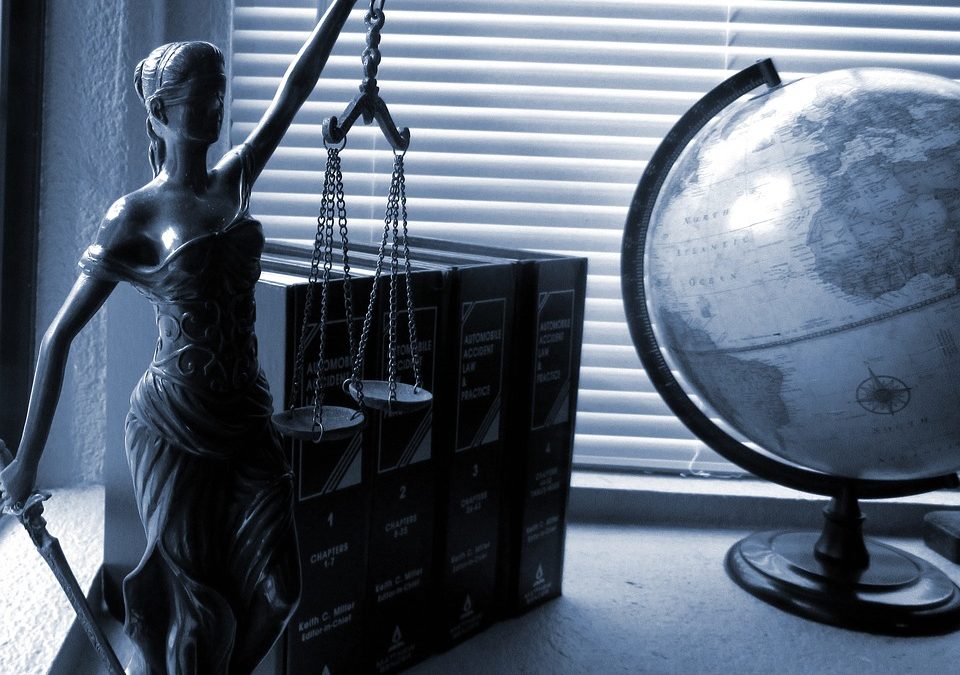
Facebook’s Proposed Cryptocurrency, ‘Libra’: A New Money Laundering Tool?
August 13, 2019
Legal and Commercial Consequences of the Boeing 737 Max Groundings
August 19, 2019The following article will explore a recent UK Supreme Court ruling, In the matter of an application by Dennis Hutchings for Judicial Review (Northern Ireland) [2019] UKSC 26, which dismissed a request for Judicial Review by the appellant, Hutchings. Judicial Review (the calling upon judges to review an act of a public body) was requested after the Director of Public Prosecutions (DPP) for Northern Ireland issued Hutchings a certificate that removed the provision of a jury in his upcoming trial.
This case dates back to 1970s Northern Ireland, when Hutchings, then a member of the British Army, fatally shot a young man whom he believed to be a member of the IRA. It was later revealed that this young man, John Pat Cunningham, had nothing to do with the IRA. Rather, Cunningham had the mental age of a child and the terrified twenty-seven-year-old was startled by the sight of the British troops so decided to run away with no concern for the soldiers’ demands that he stop. In 2015, Hutchings was charged with attempted murder and attempted Grievous Bodily Harm. The following year, the DPP filed a certificate under the Justice and Security (Northern Ireland) Act 2007 directing that he should be tried by a judge alone. Hutchings was not made aware of the certificate until 2017 and sought to challenge the DPPs act via Judicial Review. His appeal to the High Court was dismissed, and so took his case to the Supreme Court in 2019, again to see his case refused. This article will discuss the Supreme Court’s decision and….
A brief recap of the Justice and Security Act (Northern Ireland) 2007
This Act allows the DPP to grant a certificate stating that a defendant should be tried by a judge alone and not on the collective opinion of a jury. This can be done when:
- The DPP suspects that a ‘condition’ of the Act has been met.
- They believe there is a risk that the administration of justice would be prevented if the defendant was tried by a jury.
The DPP relied upon condition 4, which enables an altered trial if the offence was committed in relation to religious or political hostility from one person or group towards another.
The law later provides that a court cannot question the acts of the DPP when they issue such a certificate unless there is evidence of:
- Dishonesty
- Bad faith
- Other exceptional circumstances.
“That’s not fair!”: Hutchings’s appeal for Judicial Review
Hutchings wanted to challenge the certificate on a number of matters:
- Hutchings claimed condition 4 had not been met,
- He argued that, as a matter of procedure, he should have been provided with the reasons why the DPP wanted to issue the certificate.
“It’s a no from me”: The Supreme Court dismisses Hutchings’s appeal
After being dismissed by the High Court, the grounds for Hutchings’s challenge were reviewed by the UK Supreme Court and the Justices unanimously dismissed the appeal.
In response to the two challenges mentioned above, the Justices concluded that the DPP has broad scope under the 2007 Act to issue such a certificate, relying on their own judgement when considering that a condition has been met. Thus, a jury trial would be inadequate in this case. Moreover, ‘Condition 4’ covers a broad set of circumstances and the Supreme Court ruled that it was reasonable for the DPP to connect Hutchings’s offence with the political situation of Northern Ireland at the time. Hence, the Supreme Court concluded that the DPP followed the correct procedures.
On the Condition 4, despite Hutchings claiming his circumstances were exceptional as they involved the right to a jury trial, the Act’s purpose was to consider when jury trial would result in unjust proceedings, and thus remove this right if necessary. A notable element of the judgement is that trial by jury was not described as the only way of conducting a fair trial and that, in some cases; it may be an unfair practice – though jury trial is seen as a right, it is not an ‘absolute right’, our rights are instead to a ‘fair trial’.
Therefore, Hutchings is to be tried for his past offence without the consideration of a jury. He continues to deny the charges.
Is trial by jury the only means of a fair trial?
It can be said that the notion of being tried by one’s peers is a crucial aspect of our justice system, with suggestions that a body of the general public, unlikely to have familiarity with the law and with no prior knowledge of the case, provide neutrality that a ‘case-hardened’ judge cannot provide.
Moreover, judges at the highest ranks of the judiciary tend to come from backgrounds that are very different to the background of many defendants’. A jury balances this out by being representative, through random selection, of a broader society.
However, the purpose of the 2007 Act is to restrict one’s right to jury trial when there is a risk that jury neutrality would be compromised. As Hutchings’s trial was for an offence that was committed over three decades prior, and as it was in connection with a highly controversial political period, members of a potential jury may have been more influenced by their pre-established biases rather than the evidence presented in court. As a result, the fairness of their verdict would be questionable.
Nevertheless, it is worth considering whether the preference of a defendant should be taken into account after a certificate under the Act has been issued, especially considering that such a certificate is only applicable for indictable offences (the highest level of offence where trial by jury trial is usually practiced). Having made his case so persistently, it is evident that Hutchings felt he deserved the right to be tried by a jury and was not deterred by the potential opinions with which jurors may have entered the court. At the time, he believed that Cunningham posed a valid threat and he was acting, in his view, within reason – lacking the knowledge of Cunningham’s innocence. If the defendant in any case subjectively views their trial as unfair, and the objective standards of a conventional fair trial (one that involves a jury) have been altered, some argue that the ‘fundamental right’ to a fair trial is threatened.
Others argue that a fair trial can only be held through a professional judge. With judges having an understanding of the law and the correct way in which it should be applied, there is less scope for a conviction to be made in error – a risk of a jury trial, as members of the public may not wholly comprehend the facts of the case they are trying, and thus produce a guilty verdict on the basis of other factors.
Does time affect guilt?
This case draws upon another significant theme: the prosecution offences committed many years prior. In Hutchings’s case, there was a period of 41 years between the offence, in 1974, and the commencement of prosecution, in 2015.
It is generally accepted that the prosecution of infamous offences is vital in order to promote justice for both their direct victims and for wider society. This is even after decades of delayed proceedings or when the initial act was not illegal when committed, as evidenced by the Nuremburg trials, the recent Hillsborough inquest, and the prosecutions of those involved in the Troubles of the 1970s.
Yet, for less serious crimes, the need for prosecution after a substantial period of time may be questionable. Some argue that, when the defendant has reached an old age or established a family with dependent children, the threat that they pose to society is reduced. They are unlikely to re-offend and the resources spent on prosecuting and sentencing them for a past crime is better focused on more current cases. The aims of deterrence and denunciation when sentencing could even be negated, as members of the public may view such procedures as unjust.
What are the implications for the future?
This decision is prominent in causing us to question our ideas of just legal proceedings. Moreover, as there have been proposals to strengthen the legal protection British veterans receive against investigation, with the UK government viewing such proceedings as unfair, it evidences continued calling for justice.
TSL will cover the result of Hutchings’ trial in an upcoming post. The full Supreme Court Judgement can be accessed here:
https://www.supremecourt.uk/cases/uksc-2018-0040.html
The provisions of the Justice and Security (Northern Ireland) Act 2007 can be accessed here:
https://www.legislation.gov.uk/ukpga/2007/6/contents
Article written by Eliza Liddicott





